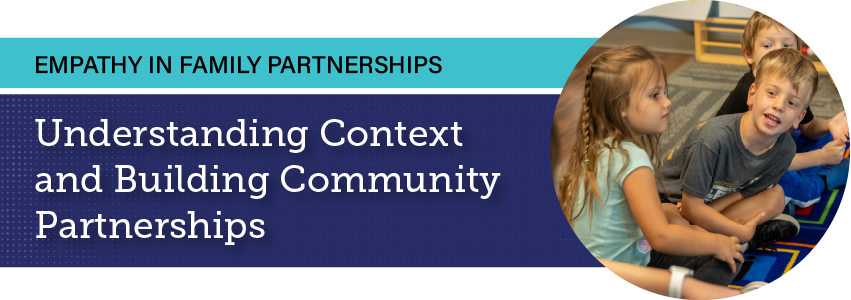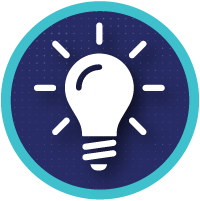CDE will be closed on Monday, September 1, for the Labor Day holiday.
You are here
Module 2: Understanding Community Needs

Learning Objectives:
- Explore existing school-community partnerships
- Understand gaps and successes regarding such partnerships
- Learn to create meaningful community partnerships to strengthen family partnerships, particularly with families that have children with exceptionalities
Before conducting a family interview, an interviewer should be familiar with the school community and its strengths, resources, and needs, to have a general understanding of students’ experiences in their broader community. This will bolster connection and trust between the interviewer and the family, and will enhance practice recommendations later.
Attending community events (e.g., cultural events, sporting events, etc.), speaking with community members, staying informed (e.g., listening to local news stations) and volunteering within the community will provide opportunities for you to gain an understanding of the community strengths and culture. It is particularly important to develop an understanding of the strengths of minoritized families in your school community and gain a picture of how children with exceptionalities and their families engage with their community. Attending culturally- or advocacy-focused events within the community is one way to develop this understanding.
Having a strong knowledge of existing relationships and partnerships between the school and community will allow you to utilize these partnerships to serve families. For instance, you may connect families with community-based, culturally relevant resources for families of children with exceptionalities through such partnerships. Speak with other educators and community professionals to learn more about existing school-community partnerships and what they provide for students and families (advocacy organizations, afterschool care,parent support groups, etc.) . Reflect on the community culture, strengths, and needs, and develop an understanding of how each partnership enhances school-community connections, particularly for families of children with exceptionalities. It may be helpful to use a tool to analyze the strengths and weaknesses of each partnership. For instance, the National Center on Time and Learning provides a Framework for Assessing School-Community Partnerships. Using a tool will allow you to systematically evaluate the strengths and areas in need of improvement for each partnership.
Once you have an understanding of current school-community partnerships, you may engage in work to enhance existing partnerships and even develop new partnerships. The Colorado Department of Education provides several resources on developing strong, effective, and collaborative relationships with community partners. Tips for enhancing these partnerships include:
- Define shared goals and shared visions for the partnership, as well as clear roles and responsibilities of key team members.
- Treat community organizations as equal partners: both community organizations and schools have an important role in child and family well-being.
- Build flexibility into the partnership to allow for changing community and partner needs.
- Secure a long-term plan for sustainability, including funding sources.
Reflection Questions:
- What are the strengths of your school community? Reflect on the ways in which you can leverage these strengths to enhance your relationship with families.
- What gaps exist in current school-community partnerships, particularly partnerships with organizations who focus on minoritized racial or ethnic groups. Reflect on ways in which you can enhance school-community partnerships to more effectively serve your school-community.
- In what areas of school-community partnerships would you like to gain more professional experience to enhance your ability to build and sustain partnerships?
Other Resources:

Having trouble with this webpage?
If you have problems with broken links or accessing the content on this page, please contact the Exceptional Student Services Unit at ESSU@cde.state.co.us. Please copy the URL link for this page into the email when referencing the problem you are experiencing.



Connect With Us





